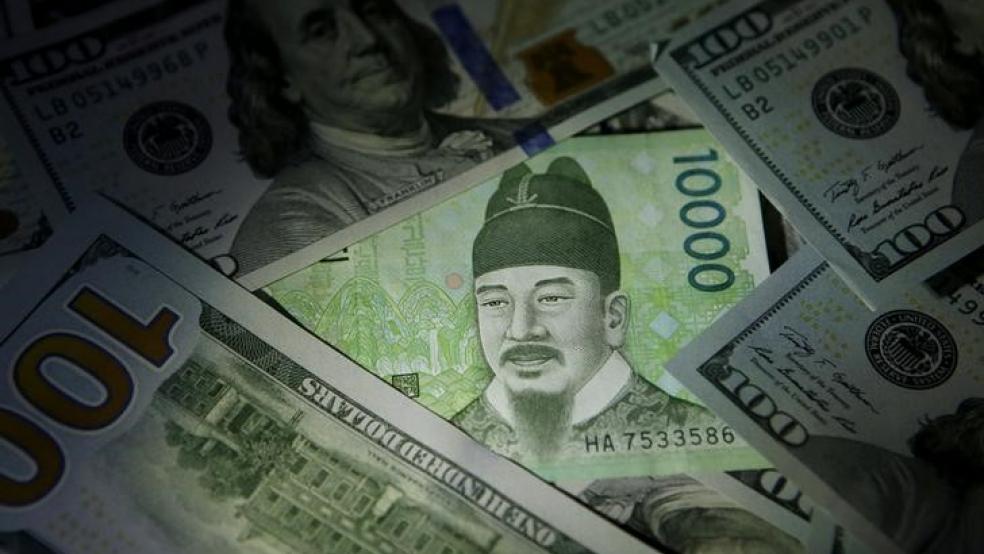SEOUL (Reuters) - South Korea should look to tolerate greater two-way moves in its won currency as volatility spikes in the wake of the election of U.S. President Donald Trump, shifting expectations around the outlook for U.S. monetary policy and the growing threat of U.S. protectionism, the country's top currency official told Reuters.
South Korea's won and stocks have been caught in a tide of global markets volatility since Trump's stunning victory in November, with the new U.S. administration's policies raising uncertainty about world trade and economic growth.
"In the past, 1 percent moves were thought of as big but now I believe that kind of perception needs to change," said Song In-chang, deputy minister at the Ministry of Strategy and Finance.
In an interview with Reuters on Wednesday, Song said Korean authorities may have to re-think their intervention strategy to take into account sharply wider average daily movements in the won
since Trump's win and the Federal Reserve's interest rate hike in December last year. However, the government will continue to intervene in the currency market to smooth any extreme one-sided moves, he said.The deputy minister's comments came as global markets were jolted by the specter of currency wars after the Trump administration took aim at Germany, Japan and China, saying the three key U.S. trading partners were engaged in devaluing their currencies.South Korea, which exports heavily to the American market and maintains a big trade surplus with the U.S., has been keeping a close eye on how Trump's policies evolve as his new administration moves to becoming more protectionist and inward-looking. "We do not think that we will be added to the United States' list of currency manipulators," said Song, whose comments preceded the latest U.S. government stance on the currencies of its trading partners. Song said South Korea will try and avoid being dragged into a trade spat with the United States."Now is not the time for us to criticize or blame the United States, but if there is unfairness we can exercise our basic rights and state our opinion based on international rules," he said.The Korean won, which fell nearly 3 percent against the dollar in 2016, has jumped 4.7 percent on the greenback so far this year, and was last fetching 1,153.23. POLITICAL TURMOILCommenting on an influence-peddling scandal that has engulfed the presidency of Park Geun-hye, Song said it is unlikely to impact financial markets in the near-term. However, the scandal could exacerbate market turmoil sparked by other uncertainties over policy direction or other issues, he said. The Constitutional Court will make a decision soon on whether to uphold a parliament vote to impeach Park."In the mid-to long term it could weaken the momentum of policies the government is trying to push," said Song.($1 = 1,152.4000 won) (Reporting by Christine Kim; Editing by Shri Navaratnam)



